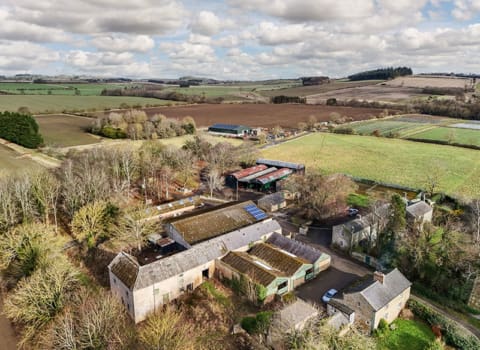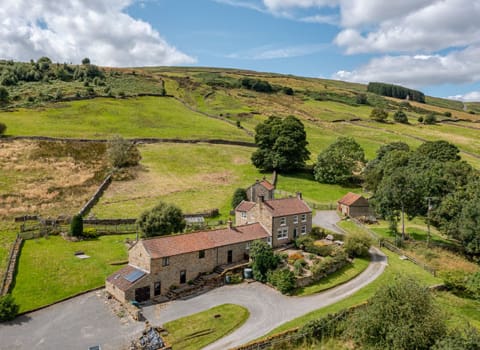Contact our offices
Main office
COLBURN
5 & 6 BAILEY COURT
COLBURN BUSINESS PARK
RICHMOND
NORTH YORKSHIRE
DL9 4QL
Estate Agency Offices are located in
BARNARD CASTLE, BOROUGHBRIDGE & RICHMOND
Residential Management Team
Our Offices
- Alnwick
01665 568310
Email Officealnwick@gscgrays.co.uk - Barnard Castle
01833 637000
Email Officebarnardcastle@gscgrays.co.uk - Boroughbridge
01423 590500
Email Officeboroughbridge@gscgrays.co.uk - Chester-Le-Street
0191 3039540
Email Officechester-le-street@gscgrays.co.uk - Colburn
01748 897630
Email Officecolburn@gscgrays.co.uk - Driffield
01377 337180
Email Officedriffield@gscgrays.co.uk - Hamsterley
01388 487000
Email Officehamsterley@gscgrays.co.uk - Hexham
01434 611565
Email Officehexham@gscgrays.co.uk - Kirkby Lonsdale
01524 880320
Email Officekirkbylonsdale@gscgrays.co.uk - Penrith
01768 597005
Email Officepenrith@gscgrays.co.uk

Compulsory Purchase – Windfall or Tax Liability?
The Government’s announcement of £15 billion of road improvements across England totalling approximately 1,300 miles, includes 18 schemes and £2.3 billion allocated to the North East and Yorkshire (A1, M1, M62 etc) and whilst this will undoubtedly help provide a marked improvement to the North’s infrastructure it will inevitably create a number of issues for farmers and landowners.
Compulsory Purchase Orders can arise through Central Government, Local Authorities or Utility Companies serving notice to legally acquire or take rights over a property and are governed by a raft of legislation and statutes covering road, rail/HS2, airports, electricity lines, pipelines, housing/commercial developments, flood defences, telecoms etc. Whilst CPOs can result in significant capital payments to landowners they can also pose a potential tax liability with land or property compulsory purchased giving rise to Capital Gains Tax (CGT). For non-corporate owners, this will generally be charged at 28% on the difference between the payment received and the acquisition cost of the land or the 31st March 1982 Base Value less any qualifying capital expenditure.
However, there are means to mitigate an immediate Capital Gains Tax liability provided that the compensation payable under the Compulsory Purchase Order is reinvested into other land and property. Furthermore if the compensation is below £20,000 and represents less than 5% of the natural unit being sold, the proceeds can be deducted from the base value. There are also annual personal allowances/Capital Gains Tax Exemptions, Principal Private Residence Relief which can be used.
Where proceeds exceed the annual allowances, roll-over provisions provide a very useful mechanism to mitigate Capital Gains Tax. In such circumstances reinvestment must be made within a four year window, commencing one year prior to the transfer or disposal and ending three years after. The relief is only available where the proceeds are rolled over into the purchase of qualifying assets although it excludes property being used as a main residence including owner occupied farmhouses within 6 years of acquisition, which can cause problems. However, reinvestment can also be made into non-trade properties including let land and buildings.
In circumstances where the business ceases and the disposal is timed correctly, it can potentially qualify for Entrepreneurs Relief which reduces the effective rate of Capital Gains Tax from 28% to 10% subject to meeting conditions. From an Inheritance Tax perspective, land may benefit from Agricultural Property Relief (APR) and Business Property Relief (BPR) but compensation payments on compulsory purchase will not benefit from relief unless reinvested into other qualifying assets.
Compensation under compulsory purchase is based on equivalence/Pointe Gourde principle (no scheme world) with the intention that claimants are “no better or worse off” after the acquisition with the compensation assessed in accordance with the provisions of Section 5 of the Land Compensation Act 1961 which sets down six rules as follows:
Rule 1: No allowance is to be made because the acquisition is compulsory.
Rule 2: The value is to be Market Value assuming a willing seller.
Rule 3: Special suitability for a statutory purpose or where there is no market apart from the special needs of a particular purchaser is to be disregarded.
Rule 4: Any increase in value for uses contrary to the Law is to be disregarded.
Rule 5: Special and rare cases only can be dealt with on a cost reinstatement basis.
Rule 6: Rule 2 is not to affect the assessment of compensation for disturbance or any other matter not directly based on the value of the land.
Compensation can also be claimed for road noise and other physical factors including smell and lighting, where no land has been taken under Part 1 of the Land Compensation Act 1973. Other potential claims include severance of an agricultural holding, expenses of removal, home loss payments, rehousing, reorganisation payments, relocation/extinguishment payments, development value potential and applications for Certificates of Alternative Development under Section 17 of the Land Compensation Act 1961.
Claims for severance and injurious affection can arise where land is split by a road or railway line with a diminution in value to the land, farmhouse, business etc is generally assessed by adopting a “before and after” approach. Disturbance arises as a direct result of the acquisition and can include loss of crops, cultivations, damage, loss of profits, expenses/costs etc albeit there is no entitlement to disturbance where the compensation is based upon the development value of the land. The use of loss and profit averaging can also be utilised to reduce income tax liabilities. It is imperative that a full and detailed record of condition is compiled prior to entry being taken and a diary/log collated of time and additional costs incurred as the burden of proof and justification is very much on the claimant.
Under the provisions of Material Detriment it is possible to make the acquiring authority acquire the whole of the property rather than just part where the residue will be less useful or valuable to a significant degree. Furthermore, in those instances where a property has become “blighted” by a development a Blight Notice can be served on the acquiring authority requiring them to buy the property at its untainted value.
In assessing the quantum of the compensation payable, the acquiring authority will also have regard to any increase in value to the retained property otherwise known as “betterment” such as releasing land for development. The extent of any compensation and injurious affection/diminution in value to a holding can also be mitigated to a degree by the acquiring authority undertaking accommodation works such as improved access, bridges/underpasses, fencing, landscaping, services etc.
Inevitably farmers and landowners will incur legal and professional costs as a consequence of property being compulsory purchased however these should be covered by the acquiring authority. There is also provision for advanced payments of compensation to be secured up to 90% of the estimated compensation under Section 52 of the Land Compensation Act 1973.
CPO is a complex area and it is imperative that farmers and landowners consider the full implications both from a business and tax perspective with a holistic approach adopted including legal, accountancy and professional advice. For further advice on the issues raised, please contact:
[team-member name=”Ashley Dodgson”]









